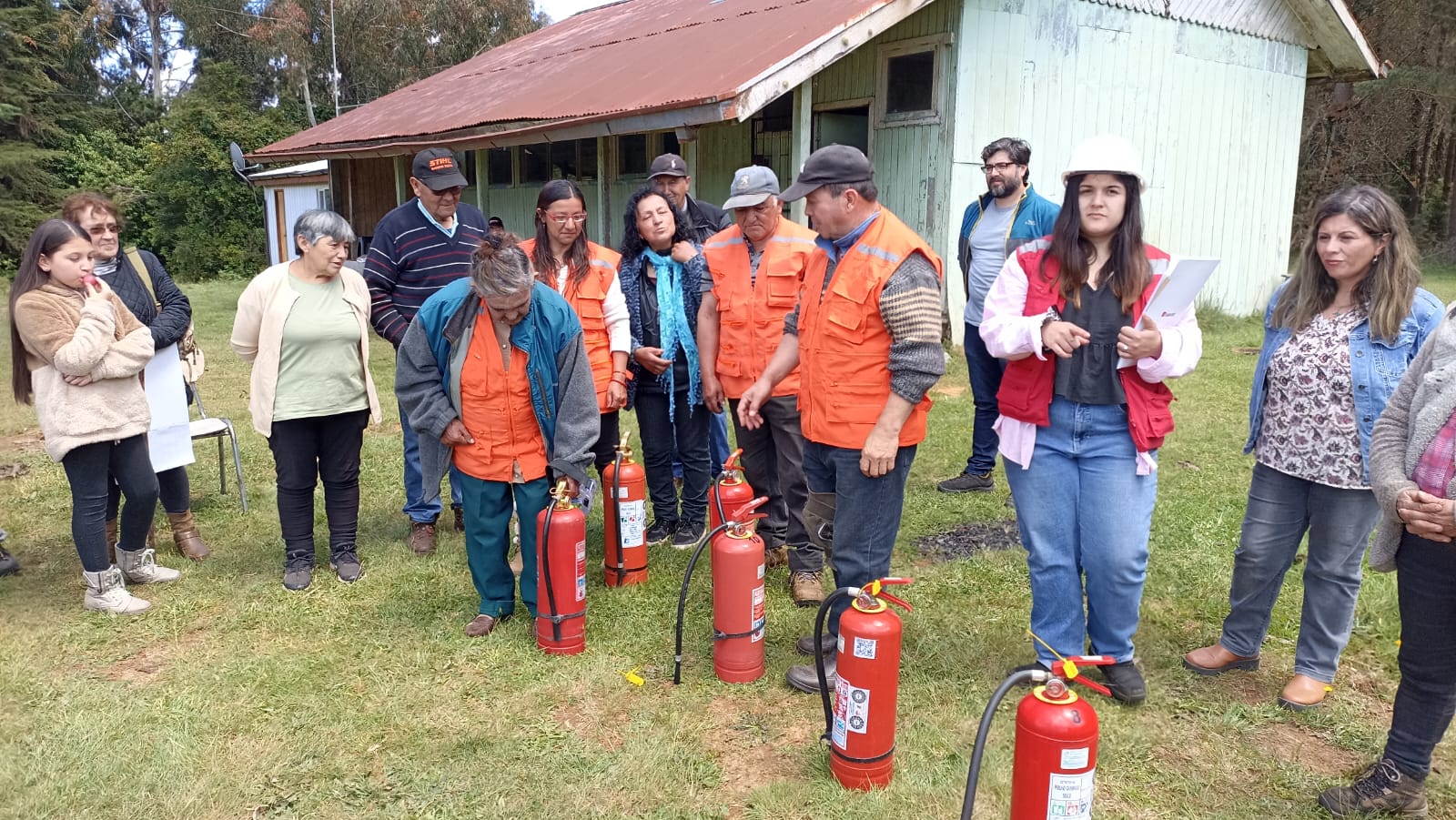Diego Henríquez oversees 16 committees, and more may join following this year's wildfires.
As a manager, Diego Henríquez has been part of the Prevention Network since October 2018. He started in Tomé and Trehuaco, later taking charge in the towns of Florida, Quillón, and Concepción, managing 16 committees.
To date, working in the network has been a highly enriching experience, as it has allowed him to understand the reality of each neighbor in rural areas and how they approach prevention. "It has allowed me to show solidarity with neighbors while also building networks. Additionally, people have responded very positively to this initiative, seeing how it has evolved and resolved issues in the territories," he stated.
He clarified that they do not work alone—while neighbors lead prevention efforts, the work involves collaboration with Firefighters, Carabineros (police), Conaf (forestry agency), and power companies. He emphasized that their approach is concrete, and the actions they decide on are carried out.
In fact, the manager noted that during the February and March wildfires, there was a shift in awareness, with the community recognizing the importance of prevention. Even areas without committees have approached him to explore forming one, as the work is not limited to summer, the peak fire season, but continues year-round.
"In fact, in Florida, we are already working on mitigation plans for the future. As soon as we arrive in a community and present our program, the work begins. It’s not temporary—the main focus is during winter, so that by summer, we already have defined and implemented actions, because prevention must be proactive," he pointed out.
Drawing on their 2017 experience, this year they were better prepared to handle emergencies. For example, he mentioned the fire in El Cortijo, Florida, which affected several areas without committees. But when the flames reached Roa, where there was an organized community, they were ready to face the situation. According to Henríquez, this was because they had conducted drills and preparedness talks to anticipate such scenarios.
Another example was in Tomé, which suffered serious damage, but in areas with committees, fewer homes burned, access was better, and other positive outcomes were observed. "As a result, I’ve seen greater interest in forming networks, especially in rural areas," he affirmed.







Comments (0)
No comments yet. Be the first to comment!
Leave a comment